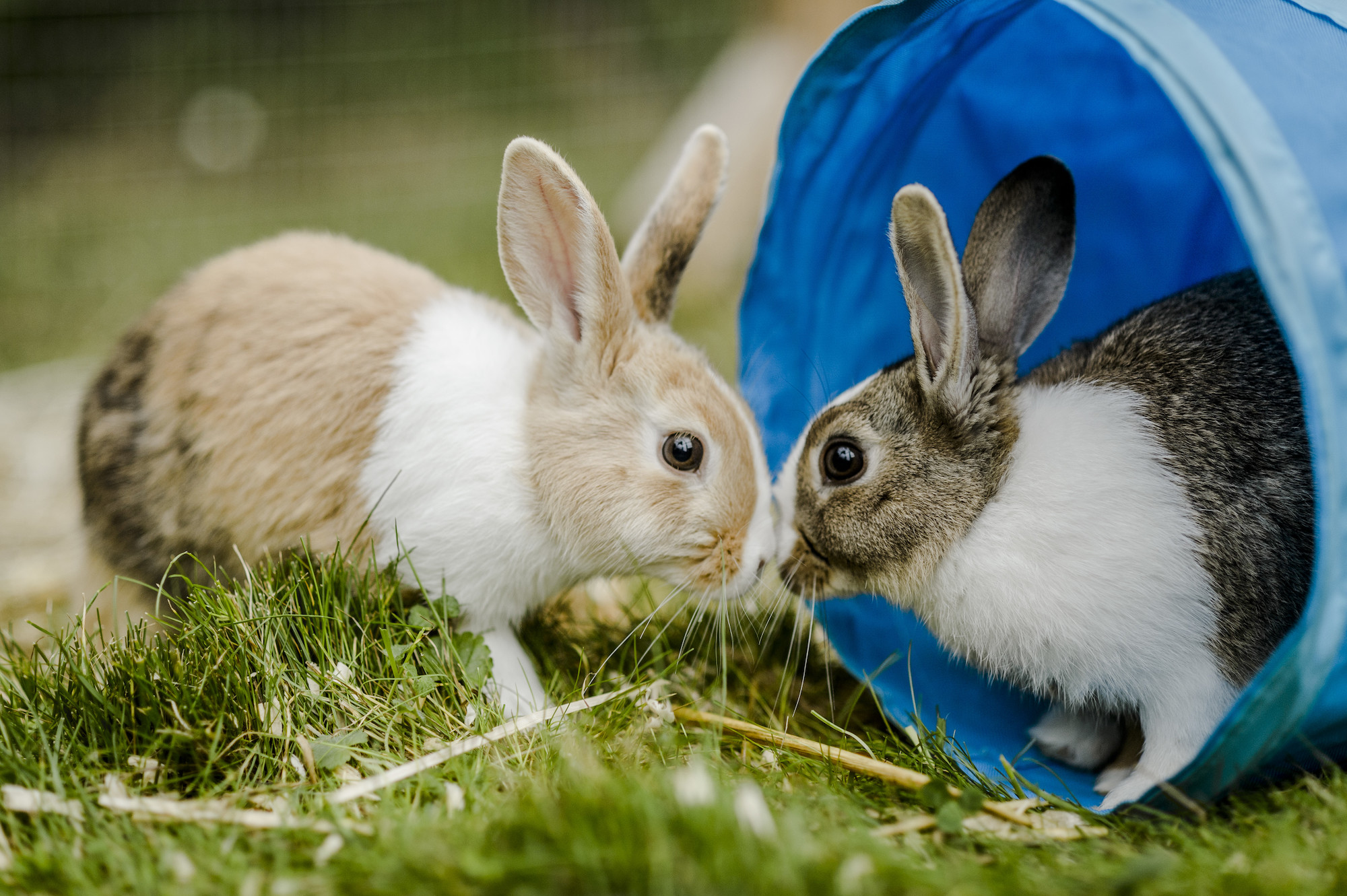
Myxomatosis
Myxomatosis in rabbits is a highly contagious viral disease that is spread by biting insects such as fleas, mites and mosquitoes.
Important
Vaccinating your rabbit is the best way to protect them against myxomatosis.
What is myxomatosis?
Myxomatosis is a severe, viral disease that only affects rabbits. It affects their skin, eyes, lungs, liver and genitals, and spreads quickly among wild rabbits. Myxomatosis can be easily passed on to pet rabbits through blood-sucking insects such as fleas, ticks, mites and mosquitoes. It can also be spread directly from rabbit to rabbit, or passed on through contaminated objects.
Myxomatosis is found throughout the UK and no area is safe from the disease.
Note
Indoor rabbits should still have regular vaccinations to protect them from myxomatosis.
Symptoms of myxomatosis
Depending on the strain of the virus, it can take between one to three weeks for symptoms of myxomatosis to show. If your rabbit has been exposed to the virus, their behaviour and eating habits may change. When the virus takes hold, your rabbit's eyes, nose and genitals are usually the first parts of the body to be affected.
Symptoms of myxomatosis include:
- swelling, redness and/or ulcers around the eyes, nose or genitals
- runny nose
- milky eye discharge
- blindness caused by inflammation of the eyes
- breathing problems
- loss of appetite
- low energy
Important
If you think your rabbit is showing signs of myxomatosis, contact your vet immediately.
What is the prognosis for a pet rabbit with myxomatosis?
If your rabbits have been vaccinated, they will usually catch a very mild form of myxomatosis and make a full recovery with supportive veterinary care.
For wild rabbits and unvaccinated pet rabbits, myxomatosis is usually fatal. Most rabbits die within one to two weeks, often from secondary bacterial infections, such as pneumonia. There is no cure, response to treatment is poor, and your vet may advise euthanasia to prevent further suffering.
Contact your vet as soon as possible if your rabbit is showing signs of myxomatosis.
How is myxomatosis treated?
There is no cure for myxomatosis – your rabbit can only be given supportive veterinary care. This is usually successful with vaccinated rabbits and involves:
- keeping your rabbit warm
- giving antibiotics to prevent any infections
- assisting with their feeds
- providing fluids that are administered through a drip
Sadly, in unvaccinated rabbits, the disease is often very severe. Unvaccinated Rabbits are unlikely to recover even if they're given intensive treatment, so in most cases euthanasia is recommended.
How do I prevent my rabbit from getting myxomatosis?
The best way to protect your rabbits from myxomatosis is by getting them vaccinated. While vaccinated rabbits can still catch a mild form of myxomatosis, the recovery rate is good.
Alongside vaccination, there are some preventative measures that can help reduce the risk of myxomatosis, such as:
- making sure there are no areas of stagnant water in your garden, as this can attract mosquitoes and fleas
- keeping your rabbits' enclosure or hutch clean
- adding mosquito-proof guards to your rabbits' enclosure or hutch
- making sure that wild rabbits cannot enter your garden
- treating your dog or cat for fleas, to prevent them from bringing fleas home. It's important not to use flea treatments for dogs or cats on your rabbits, as some can be toxic. Speak to your vet for advice on flea treatments for your pet.
Note
Regular vaccinations against both myxomatosis and viral haemorrhagic disease should be given to all pet rabbits.
What do I do if I find a wild rabbit that looks like it has myxomatosis?
You should try to confine any wild rabbit that looks like it has myxomatosis and take it to the nearest vet. If you are unable to take them to the vet, report the rabbit to the RSPCA.
If you have pet rabbits, do not take the infected rabbit home. Wear gloves and wash your hands and clothes thoroughly after touching the rabbit.
Can myxomatosis be passed onto other species of pet or humans?
No, myxomatosis can only affect rabbits and cannot be passed onto other pets or humans.
Page details
Reviewed
• 9 October 2023
Next review
• 9 October 2026





